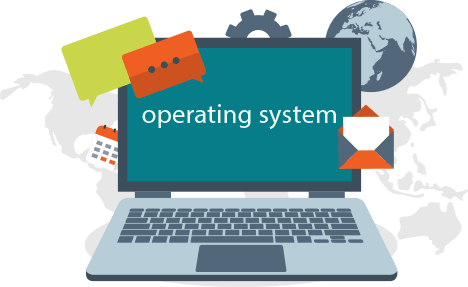Operating systems (OS) are the backbone of any computing device, providing the necessary interface between the user and the hardware. Choosing the right operating system can significantly impact your computer's performance, usability, and overall experience. Let's explore what operating systems are, how they work, and which might be the best fit for your PC.
What is an Operating System?
An operating system is a software that manages computer hardware and software resources and provides common services for computer programs. It is the most crucial software that runs on a computer, as it allows the user to interact with the machine without needing to understand its complex underlying code. Some of the primary functions of an OS include:
- Resource Management: Managing the computer's CPU, memory, disk drives, and other hardware components.
- User Interface: Providing a graphical or command-line interface for user interaction.
- File Management: Organizing, storing, retrieving, and manipulating files.
- Task Management: Handling the execution of programs and processes.
- Security and Access Control: Protecting data and managing user permissions.
Popular Operating Systems for PCs
- Windows
- Overview: Developed by Microsoft, Windows is the most widely used operating system globally. It offers a user-friendly interface, extensive software compatibility, and robust support for a wide range of hardware.
- Best For: General users, gamers, and professionals who need a versatile and widely supported OS.
- Pros: User-friendly, extensive software and hardware support, regular updates, gaming-friendly.
- Cons: Can be resource-intensive, security vulnerabilities, requires regular updates.
- macOS
- Overview: Developed by Apple, macOS is known for its sleek design, stability, and seamless integration with other Apple products. It is exclusive to Apple's Mac computers.
- Best For: Creative professionals (designers, video editors), Apple ecosystem users.
- Pros: High stability, excellent design, strong security, integration with Apple devices.
- Cons: Expensive hardware, limited hardware choices, less customizable.
- Linux
- Overview: Linux is an open-source operating system that comes in various distributions (distros), such as Ubuntu, Fedora, and Debian. It is highly customizable and known for its security and performance.
- Best For: Developers, tech enthusiasts, users seeking customization and control.
- Pros: Free and open-source, highly customizable, secure, performs well on older hardware.
- Cons: Steeper learning curve, less support for mainstream software, fewer commercial games available.
- Chrome OS
- Overview: Developed by Google, Chrome OS is a lightweight operating system designed primarily for web-based tasks. It is used in Chromebooks, which are known for their simplicity and affordability.
- Best For: Students, casual users, those who primarily use web-based applications.
- Pros: Fast and lightweight, secure, easy to use, affordable hardware.
- Cons: Limited offline functionality, less software availability, dependent on Google services.
Which is the Best Operating System for Your PC?
The best operating system for your PC depends on your specific needs, preferences, and use cases. Here's a quick guide to help you decide:
- For General Use: If you need a versatile OS that supports a wide range of applications and hardware, Windows is a solid choice.
- For Creative Professionals: If you're a designer, video editor, or part of the Apple ecosystem, macOS offers excellent tools and integration.
- For Developers and Tech Enthusiasts: If you seek customization, control, and security, Linux is ideal. It's also great for running servers and development environments.
- For Casual Users and Students: If you primarily use web-based applications and want an affordable, easy-to-use system, Chrome OS is perfect.
In conclusion, each operating system has its strengths and weaknesses. Assess your needs and preferences to choose the one that best suits your computing requirements. Remember, the right OS can significantly enhance your productivity and user experience.





Comments